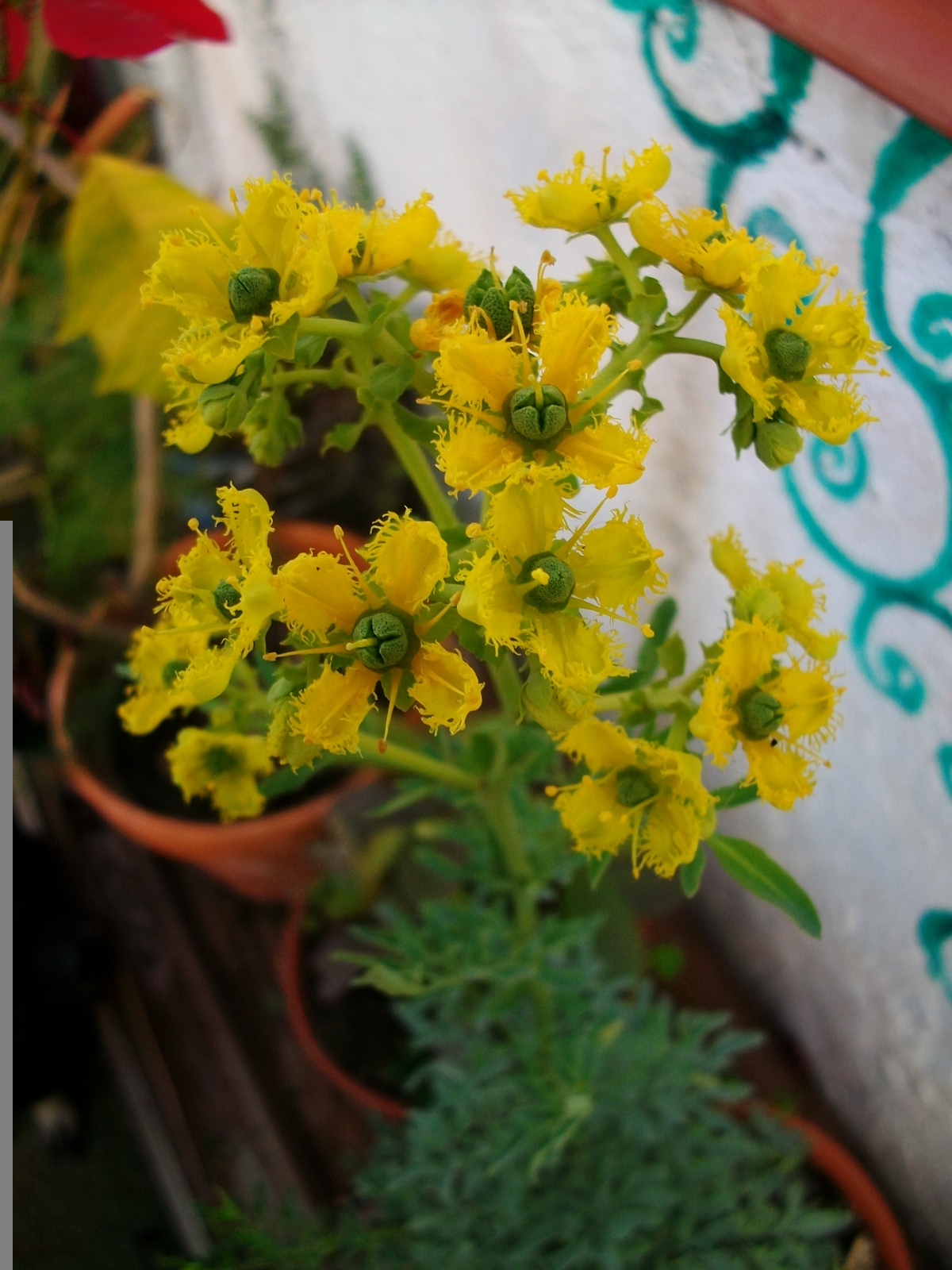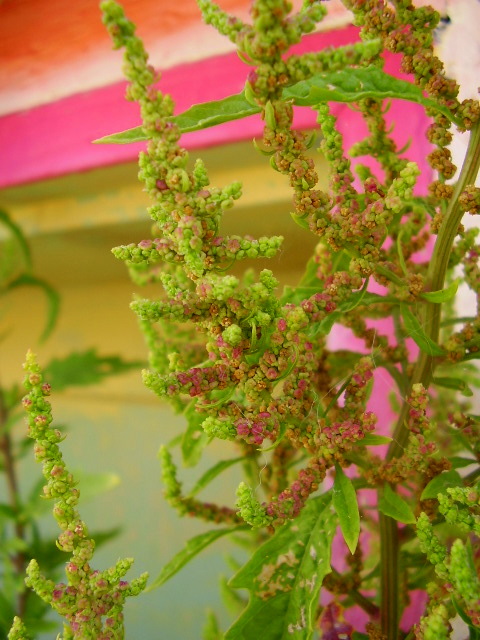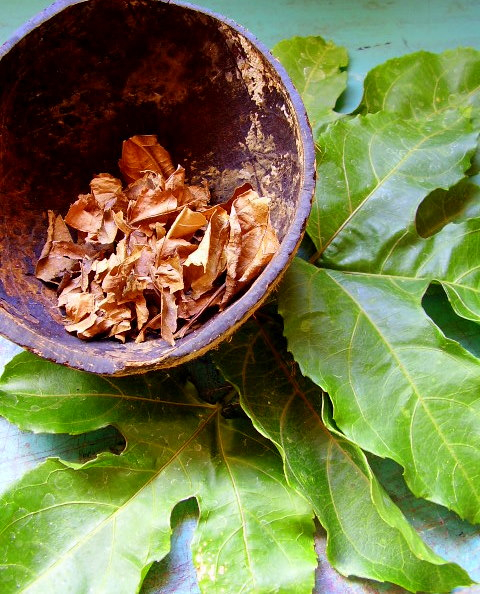North African Plants – Treasures From The Desert
by Carolina Gonzalez
Living in the Canary Islands, on the Northwest coast of Africa, makes gardening a challenging task. A six month summer, with desert temperatures and dry, burning African winds allows only the stronger, more water-saving herbs to survive in our weather. In this post, we’ll go through the most powerfully medicinal, magical, and tasty plants from our islands.
For centuries, Canarian peasants have developed many unique ways to cultivate that defy the harsh nature of our land. The volcanic landscape, while blessed with an extremely fertile soil, is often too steep and unable to be sown with the help of animals, so the work of farmers is never easy. Terracing and saving water through tanks built right beside the crops, that are filled with rain water and/or underground water, have been the strongest allies of the Canarian farmer.
Despite what it may seem according to these conditions, we have a wide variety of healing herbs and a powerful tradition of herbalism that refuses to sink under the pressure of urban landscapes and modern, synthetic medicine. Herbs are still used daily for common illnesses, physical vigour, and beauty, and are easily available in farmers’ markets and grown on balconies and roofs everywhere.
Rue
Latin Name: Ruta Graveolens
Medicinal Properties: This is a very bitter plant so its tea is not very pleasant. Pregnant women should avoid it as it is a powerful abortifacient. It is helpful to treat irregular menstruation and it is also antispasmodic, but I wouldn’t advise its use unless you are quite familiar with herbal remedies, because it is easy to overdose. In the Canary Islands, there is a traditional remedy using rue for indigestion: fry a fresh branch of rue in two teaspoons of olive oil, set aside until the oil is warm and then dab your fingers on it and use it as a massage oil for the stomach area. I have used it myself and it works much better and more safely than tea. This oil can also be used for arthritic pains, but again only on non-pregnant women. If you want your farm animals to breed, cut off all rue from their grazing zones.
Spiritual Properties: It is placed at the door of the house/business/temple to repel negativity, as this plant is a powerful warrior against conjure and evil spirits. It is a major element in protection amulet bags (dried leaves) and on hex-breaking floor washes (tea).
CAUTION!!! The combination of rue and solar exposure is very dangerous, especially during the plant’s blooming. It may cause severe burns and blisters if picked during daytime, so harvest before or after sunrise and wash your hands well after picking. Not everyone is allergic to it, as it happens with other allergy-inducing plants, so don’t take risks or you can end up in the hospital.
Epazote
Latin Name: Chenopodium Ambrosioides
Medicinal Properties: Epazote is used mainly in digestive issues. It is a wonderful herb for indigestion, or after big meals to help the digestive system work properly. In my personal experience, Epazote makes an awesome tincture for all digestive matters, and it is also steeped in liquors as part of the “Parra”, a traditional digestive herbal drink that is used to finish huge meals.
It has been used for many generations, along with Wormwood (Artemisa Absynthia), to treat intestinal parasites of all kinds. Though the risk of having internal parasites in children is nowadays very low, pets with internal or external parasites will also benefit from this plant – you can powder it and sprinkle your pet’s bed, or give your pet a bath and after it atomize the infusion over the pet’s body, always avoiding the head.
Spiritual Properties: Used in protection and hex-breaking – as always, the magickal properties are analogous to the medicinal ones. Epazote helps us digest the obstacles in life and removes spiritual parasites. It makes a wonderful smudge/spray for getting rid of residual negativity from our houses: smudge/spray the house with it after situations that are highly stressful for the whole family, like after a family member’s death, after a divorce, etc. A bundle of dry Epazote is a wonderful protection to keep nightmares caused by spirits away, and to protect children from spiritual attacks.
Passiflora
Latin Name: Passiflora Caerulea/Edulis.
Medicinal Properties: The Passiflora plant is the mother of the Maracujá or Passion Fruit. There are about 500 subspecies, but the most comon are the Passiflora Cerulea, which produces the yellow passion fruit, and the Passiflora Edulis, which produces the purple passion fruit. The fruit is one of the subtropical fruits with a higher amount of C and A vitamins. The juice is incredibly tasty and aromatic, as it is used mainly to enhance the taste of orange and papaya juices. A juice made of papaya and passion fruit is a powerful detox brew for diets, and does wonders for people with gastric problems.
Teas and tinctures of this plant’s leaves and root are known to be used to treat anxiety and depression. This plant is usually combined with Valerian Root, Lemon Balm, Orange flowers, Violets and other calming herbs and flowers. The leaves can also be smoked, dried and powdered, and mixed with other smokeable herbs, as the sedative alkaloid it contains has the same effects.
Spiritual Properties: The flowers are used mainly for love and passion amulets – a bundle of leaves, left to dry over the bed, will assure the couple lovely and passionate nights; but since it is also related to the Passion of Christ, this plant is also used in ceremonial/blessing incenses and oils, as it is believed to keep away negative entities.
Thyme
Latin Name: Thymus Vulgaris
Medicinal Properties: Though used mainly as a spice for soups, stews and sauces (try it with grilled chicken or vegetables), thyme has many powerful medicinal properties. It eases fever, phlegm and cough; relieves muscle pain and headaches caused by menstruation and sunstroke; helps digestion, lowers fever, and it is also a powerful antiseptic and antibiotic. Along with rosemary and sage, there is little thyme can’t heal.
Spiritual Properties: In magic, thyme equals courage and luck. A powerful amulet against negativity, evil eye and persistent ghost activity, it is also used for money and prosperity spells. It is just as powerful as a medicine than as a magical herb: there is hardly a spell/amulet that doesn’t improve with the use of thyme! It is also a very fragrant herb, so it can be burnt as incense to repel negative energies, specially on businesses.
Fennel
Latin Name: Foeniculum Vulgare
Medicinal Properties: This humble plant, often overseen as a weed due to its prolific nature, is full of healing properties. It eases digestion, relieves nausea and vertigo, works instantly on heartburn and bloating, and it is a mild sedative, becoming an excellent after-dinner tea. It is also a wonderful eye wash, especially for dry and sore eyes that are exposed to dry climates, and used along with antibiotic herbs, a powerfully healing wound/sunburnt wash.
In the islands, it is customary to give fennel tea to babies with colic. Although nowadays herbal healers are extremely cautious when giving herbal teas to babies younger than a year, many generations of Canarians have used this remedy for their sick babies.
Spiritual Properties: Fennel is highly related to children’s protection and thus, to angelic magic. Tied in a bundle over the main door of the house, it is a sign of angelic protection, keeping negative spirits away. It is also a very well known herb for lucky gambling – keep a small red fabric bag filled with fennel near your lottery tickets for an extra dose of good luck.
About the Author
Carolina Gonzalez has been a professional Tarot Reader and Spiritual Worker for over 15 years, as well as a creator and provider of Spiritual Art and Supplies through her online business, House Of Eleggua, which caters an exquisite worldwide clientèle with the best quality items for the practise of African and Latin American – origin religions. Her blog, as of September 2012, has reached 335,000 visits and her artwork is proudly displayed on altars, temples and sacred spaces all around the world.
Carolina and her husband Fernando Abisaab are also the founders of the House Of Eleggua Temple, which is involved in several charity and environmental projects, and focused on educating their supporters on the beauty and power of African and Latin American – origin religions.
All text and images property of Carolina Gonzalez. Do not reproduce this article, or the images included, without written permission from the author.








